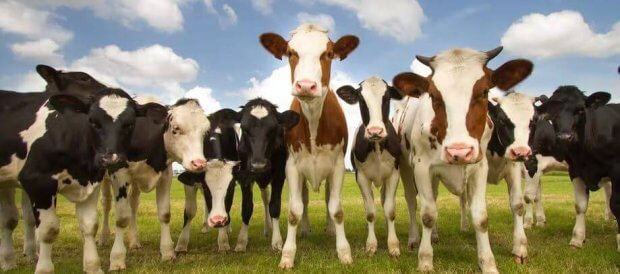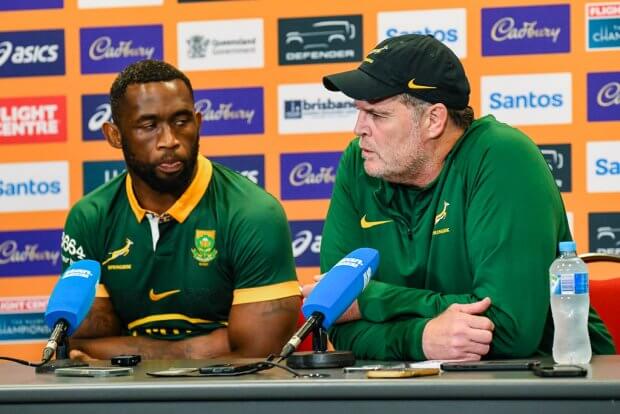Big thank you to regular contributor AllyOz for his article below. Take it away Oz.
Many of you have probably already seen this but I have started watching the first season of Chasing the Sun on Rugby Pass TV. (This is a little like when I discovered Radiohead in 2011 about 15 years after everyone else did….putting me in the same boat (pun intended) as Captain James Cook who discovered Australia 60K years after the first inhabitants and a couple of hundred years after a few Dutchies.
Anyway, the first couple of episodes have been fantastic and if anyone hasn’t watched it yet, it details SA’s lead up and preparation for the 2019 RWC (the second series is out soon and apparently is even better and details the lead up to the 2023 RWC win). Under previous coach Allister Coetzee, SA had slipped to 7th in the World. They lost by record scores to NZ of 57-0 in Wellington (?) and 57-13 at home in SA and they lost 4 on the trot to Wales. When Erasmus and Nienaber took over there wasn’t an immediate turnaround either – they still recorded some heavy losses – but eventually they did turn it around. I think we should be encouraged by that. We were beaten by 7 – 33 on the weekend and I do feel the scored could have been 0-50. But our record loss to SA is 53-8 in 2008 at Loftus and we also lost 61-22 against the Saffers in 1997. We won the 1999 World Cup two years later beating SA in the semi 27-21.
The thing is, while it is easy to get down in the dumps about where we sit in the world rankings and our on field performances over the last 6-10 years it isn’t irreversible. SA have proven that. We have some different challenges to SA but to say they didn’t have plenty of their own is deluded. They possibly had more and bigger challenges than us – a divided fan base, an economy in decline, issues around ethnicity and pressure around representation quotas, splits in the playing group and they had a major long term sponsor withdraw.
A number of things stood out for me in the documentary.

You Need A Plan
The first thing only gets a very small mention (15 mins or so) and it was at the administrative level. They made some changes around coaching, they developed a plan and they went to a major sponsor who while maybe initially sceptical, was very supportive and they took it on – seemingly as a partnership. That gave them the resources that they needed to begin to do implement that plan. We have our own generous people here who support the game and we have seen some movements around the rugby foundation. It also seems to me that, with the recent appointments of Horne and Nucifora, and the strategic meetings held with SR clubs that the current RA administration are working to put those pieces together.
Hopefully, that means we start to address the issues around pathways and player and coach development soon but these aren’t easy fixes and they don’t get immediate results. When we adopted a coaching development plan, largely based on the Welsh model in the mid 1970s (after a time of similarly poor results over the preceding decade) it was 3 – 4 years or so before that began to feed through to the junior level and eventually into the highest levels of senior level leading to the 1984 Grand Slam and Bledisloe Cup wins. The ARC/NRC did identify and develop players but it was 2 – 3 years before they came through to the Wallabies.

Have We Got The Cattle?
The second thing that struck me about South Africa’s rebound was that many of the players that were involved in those record losses – the 57 – 0 away and the 13 – 57 home losses – are the same players that have gone on to win 2 consecutive World Cups and dominated us so easily this past weekend. Eben Etzebeth, Duane Vermeulen, Frans Malherbe, Willie le Roux, Trevor Nyakane, Siya Kolisi, Pieter-Steph du Toit, Handré Pollard, Damian de Allende, Cobus Reinach, Jesse Kriel, Faf de Klerk, Franco Mostert, Steven Kitshoff, Bongi Mbonambi, Malcolm Marx, Ox Nché, Lukhanyo Am, Kwagga Smith and Makazole Mapimpi all debut prior to and played through the period when SA slipped to seventh in the world and had 57 points racked up against them by the All Blacks both at home and abroad. In some ways it is similar to the 76-0 record loss of England to the Wallabies at Lang Park in 1998 that produced many of the England players that went on to win the World Cup but in other ways its not. SA during this time weren’t consciously looking to expose players, they just weren’t winning.
If we start to get our coaching structures together at the Wallabies and at the level below, we might see some of these players that we are writing off as not up to standard, emerging as world class players. I was struck by some of the key errors in some of those games from Handre Pollard – can a Noah Lolesio or a Tom Lynagh reach that level with the right support and direction around them. I watched the scrum of South Africa dominated by NZ teams that contained the names in the list above that now dominates most packs in the world. Qld and the ACT seem to have settled coaching groups, Simon Cron was one of the most promising coaches in the local system and has been mentored by some of the best coaches in the world and NSW have put together an experienced coaching group for next season. At the Wallabies level, we have, perhaps the most internationally experienced coaching teams in Australian history. I hear some of the technical comments that Schmidt has made around selections and some of the feedback he has given to players who have returned from the camp, like Ryan Smith, and I am confident that we have picked the right man.
After watching the transformation in some of those South African players from easy beats to world beaters I am looking at our own playing group differently. What can a Carlo Tizzano or a Harry Wilson or a Nick Frost look like in another ten or twenty tests time. What will a player like Rob Valetini, who I consider the only player we have at the moment that I might consider to be world class, and wonder what further growth we might see in him? I look at a player like Kailea, who endured a punishing day at the hands of one of the best front rows in the world and I wonder what a coach like Mike Cron can do with a young man with the obvious potential he has over the next 10 games.
I also wonder if the embarrassment and shame that those players in SA suffered during those record losses is part of what drives them to not rest now and to continue to want to dominate teams and individual opponents. There is a moment shown in the film where Erasmus sends a message down for the team to not push NZ in latter moments of a game. He doesn’t want to risk losing the bonus point that will be enough to keep them on a path to win TRC. But the players defy him, believing they can score and risk it, even though a try will only deliver them a draw. They do scored with the final result a 16 all draw but they celebrate it like a win and the NZ players are devastated as if they have lost. It shows a turning point, when the team begin to believe in themselves, even to the point where they will ignore a coaching instruction. Will these heavy defeats we have endured build the desperation and the resilience and the desire to turn it around in our players? Well, if we change our players around too much, we might actually remove that impetus. The opportunity for any desire that Carter Gordon might have had to respond to failure and adversity has now been removed. There is a fine balance between removing an underperforming player and given a player an opportunity to respond and learn from failure.

Believe
There’s is something else our team needs to build and that’s belief. Another thing that struck me about SA’s turnaround was the importance that belief played. He said that he and his coaching group needed to believe in each others capacity to make the necessary changes, that the players needed to believe in the them and that the fans needed to believe too. Interestingly, he also commented that the referees needed to believe and by this, I think he meant that sometimes losing teams or poorly performing teams cop more of a focus from refs. It’s an unconscious bias that the weaker team must be in the wrong. I am sure refs try to avoid doing it but I do think there is evidence of it, particularly at scrum time. In Australia, after Eddie de-powered our scrums in the early 2000s we had to reconvince referees that we could be a dominant scrum.
I think as a supporter, I also need to believe. And while it’s easy to watch the weekend’s game and be frustrated, there are some things I have seen that suggest we are making progress. On the weekend, I saw some robust defence. There was a willingness to take on the SA forwards. It probably contributed to a few of the penalties we gave away and there were plenty of times when the players got themselves in poor positions but it showed a desire.
I was also encouraged that they continued to try. I actually think that trying too hard was maybe part of the problem and it bound us up a little in our attack and contributed to some of the penalties (like Tizzano’s clean out off the feet – not picking on him but it was the one that stood out for me). I was also encouraged by some of the maul defence. It was poor against Wales but much improved on the weekend. That suggests to me that the team and their coaching staff can learn and adapt and improve.
There is a lot of things we need to improve in our game and there is a temptation, as a fan, to what to see that change come immediately, to have the magic click and all of a sudden we are back beating the best in the world again. Eddie claimed after our losses in the 2023 TRC (after the Argentina game) that it could just take one play and we would begin playing freely and unburdened. While there might be an element of truth in that, I don’t think SA’s experience suggest that. It suggests that we will takes some forward steps only to be forced back again. That, a bit like a child riding a bike for the first time, we will get the wheel wobbles and hit the curb and guttering and have a crash or too but I think we can get up again, wipe off our skinned knees and have another go. At the moment, we can’t make it all better straight away, but we can change one or two things that will make a difference, hold onto those gains and work on the next one or two things, building gradually until we are once again, competitive with the best teams around.
I want to believe. I want to believe we can once again challenge and beat the best teams in the world. And, having watched the South African experience, I think we can find away to become a top competitive rugby team again, one capable of beating NZ and the Springboks, Ireland, Argentina and England. Our way will be different to SA’s,but it will share some common elements. I think the signs are there that we are making some of the right decisions. They won’t deliver immediate results but I think we are on the right path – even if we’re still a little wobbly. But I am in for the long haul. Go the Wobblies Wallabies.

